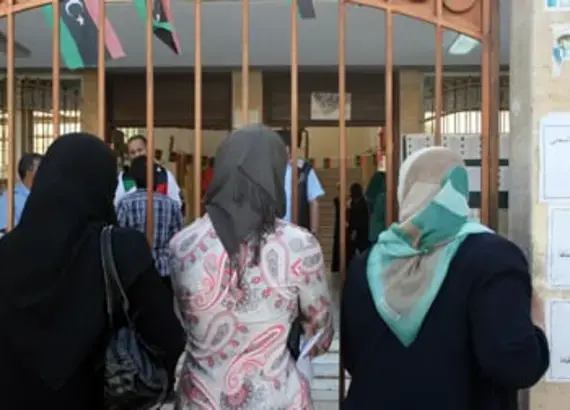
Success Story
Libyan Political Parties Sign Voluntary Code of Conduct; Call for Peaceful Elections
On Saturday, Libyans will vote in the first national election since the uprising that ousted Muammar Gaddafi, who ruled over the country for more than four decades. Citizens will elect 200 members to serve in a National Public Conference (NPC), which will oversee the drafting of a new constitution and design the institutions of Libya’s democracy. For the first time in the country’s history, political parties are organizing across the country to field candidates for public office.
All candidates are required by the High National Election Commission (HNEC) to sign a code of conduct when filing nomination papers. But candidates and political parties had no say in the creation of the document and thought that a party-generated code could address points not included in the HNEC version, such as mutual respect among competitors, responsible leadership and public safety.
To meet this need, NDI and the United Nations Support Mission in Libya (USMIL) convened a group of political parties from across the political spectrum in Tripoli on June 17, one day before the start of the official election campaign period. The parties collaborated on a voluntary code of conduct that they have agreed to abide by.
NDI presented participants with codes of conduct from the Palestinian Territories and Yemen, as well as international standards for campaign codes of conduct. The 60 representatives from 40 parties, ranging from smaller, regional-based parties to larger, national organizations, ultimately agreed on 14 principles, including:
- Abiding by all laws, regulations and procedures governing the electoral process;
- Contesting the elections with campaigns that focus on the promotion of party programs and refrain from discrediting other political entities;
- Disavowal of any use of violence or threat;
- Encouraging an environment conducive to the participation of women, and all elements of Libyan society, in every aspect of election campaigns and the voting process;
- Not bribing voters, buying votes or blocking citizen access to ballot boxes;
- Full cooperation with electoral authorities regarding any investigations into alleged fraud, irregularities or errors in the electoral process; and,
- Accepting the final results of the elections as announced by the HNEC.
One party representative emphasized the importance of this code, saying that it shows parties’ willingness “to come together on these issues because they all agree that it is in the best interest of the country.” Several of those in attendance planned to publicize the voluntary code on their parties’ websites, and on their Facebook pages. Parties unable to attend the conference will also have the opportunity to sign on to the code.
In addition to drafting the code, party representatives were able to ask questions to HNEC Chairman Nuri Al-Abbar, who was on hand at the conference to field questions on security and political concerns for election day. Al-Abbar said that the HNEC had a security plan in place, and elaborated on recent developments in the electoral administration, including mechanisms for filing complaints, limits on campaign spending, and the status of final candidate lists. Additionally, he expressed the HNEC’s firm commitment to holding elections on schedule, even with a tight electoral timeline and logistical challenges stemming from a difficult political environment.
At the conclusion of the conference, 12 of the participating parties went one step further by drafting and endorsing a joint statement condemning the recent escalation in violence ahead of the campaign period, which had already claimed the life of one candidate. The statement called for all violence to cease immediately and for Libya’s National Transitional Council (NTC) to undertake necessary actions to ensure a safe election period.
Related:
Published July 6, 2012



